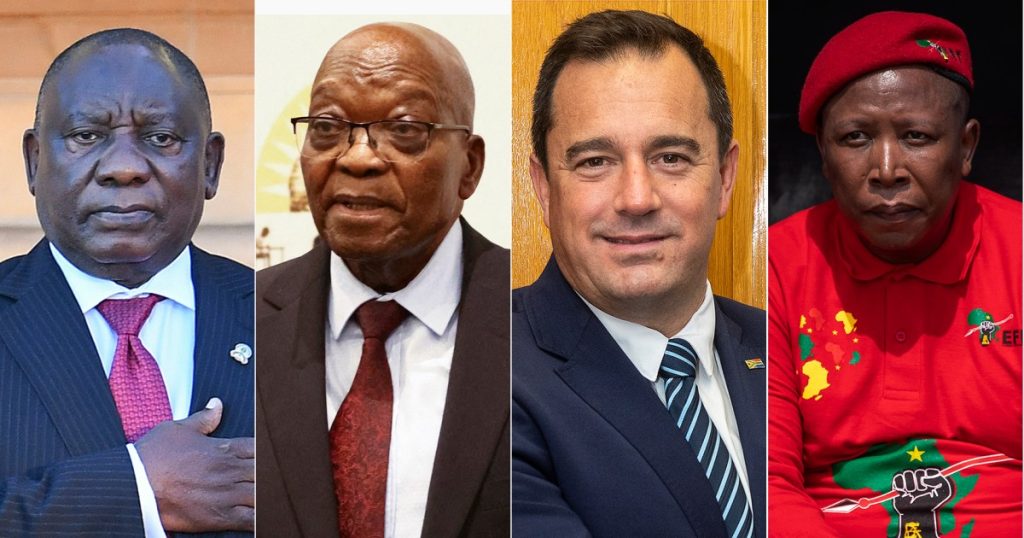The upcoming general elections in South Africa on May 29 are shaping up to be a pivotal moment for the ruling African National Congress (ANC). With 28 million registered voters across nine provinces participating, the outcome of the elections remains uncertain due to a number of pressing issues facing the country. These include high unemployment, violent crime, decaying public infrastructure, and economic inequality. The elections will determine representatives for national and provincial parliaments, who in turn will elect a president and cabinet.
Several key personalities are set to play a significant role in the elections. Cyril Ramaphosa, the current South African president and head of the ANC, is seeking his second and final term. Despite his reputation as a level-headed leader, his tenure has been marred by scandals and challenges, most notably the country’s economic woes. Ramaphosa faces stiff competition from other parties, with opinion polls indicating a potential decrease in support for the ANC.
John Steenhuisen, the leader of the Democratic Alliance (DA), is positioning his party as a viable alternative to the ANC. Although the DA has been criticized for primarily catering to the interests of the middle class, Steenhuisen has managed to rally support from a coalition of opposition parties. However, the DA’s perceived lack of representation for Black voters remains a contentious issue in a country still grappling with the legacy of apartheid.
Jacob Zuma, the former president of South Africa, remains a divisive figure in the upcoming elections. Despite facing corruption charges, Zuma has formed the MK party in a bid to challenge the ANC’s dominance. With the support of disillusioned voters, Zuma aims to disrupt the political landscape and potentially sway the outcome of the elections in his favor.
Julius Malema, the founder of the Economic Freedom Party (EFF), represents a radical voice in South African politics. Advocating for the rights of Black South Africans and pushing for land redistribution, Malema’s party has been a vocal critic of the ANC’s governance. However, opinion polls suggest that the EFF may lose ground to Zuma’s MK party in the upcoming elections.
Velenkosini Hlabisa, the president of the Inkatha Freedom Party (IFP), is another key player in the elections, particularly in the KwaZulu-Natal region. As part of the MPC coalition, the IFP seeks to secure a significant share of the vote and potentially play a significant role in the formation of the next government. With a focus on autonomy for traditional leaders, the IFP’s platform resonates with supporters in the region.
The role of Chief Justice Raymond Zondo and the Electoral Commission of South Africa (IEC) will be crucial in ensuring a fair and transparent electoral process. With the possibility of legal challenges and court disputes following the elections, Zondo’s leadership of the Constitutional Court will be vital in upholding the rule of law. Meanwhile, the chairperson of the IEC, Mosotho Moepya, and the chief electoral officer, Sy Mamabolo, are tasked with overseeing the smooth conduct of the elections and preventing any instances of electoral fraud.
As South Africa prepares for a consequential election, the country is at a crossroads with multiple parties and personalities vying for power. The outcome of the elections will not only shape the political landscape but also determine the future direction of the country in addressing its pressing challenges and moving towards greater economic development and social progress.


